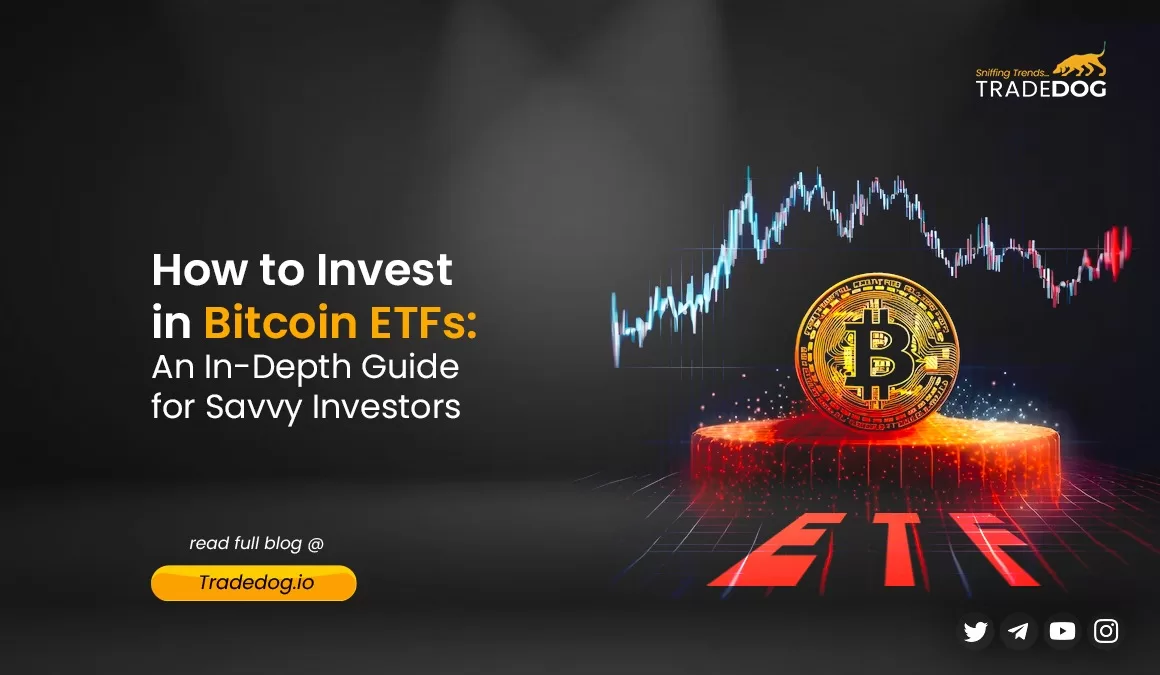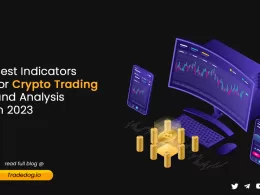Quick Links
The world of cryptocurrency can be intimidating, but the recent arrival of Bitcoin Exchange Traded Funds (ETFs) has opened up a new avenue for investors seeking exposure to this exciting asset class. Before you jump in, it’s crucial to understand the nuances of Bitcoin ETFs and carefully consider the implications. This guide will equip you with the knowledge and steps you need to navigate this investment option confidently.
Understanding Bitcoin ETFs
Bitcoin ETFs are a relatively new financial instrument created to simplify investing in cryptocurrencies. Unlike traditional ETFs that hold actual stocks or bonds, Bitcoin ETFs primarily invest in futures contracts or a basket of assets related to Bitcoin. This means you gain indirect exposure to Bitcoin’s price movements without directly owning the cryptocurrency itself.
Types of Bitcoin ETFs
Futures-Based Bitcoin ETFs
Futures-based ETFs are an investment fund that tracks the price of Bitcoin futures contracts. This provides a convenient way for investors to gain exposure to Bitcoin without buying the cryptocurrency directly. However, the price of these ETFs may not always align with the actual or ‘spot’ price of Bitcoin. This discrepancy can be due to two main factors. The first is tracking costs, which are the expenses incurred by the ETF in its attempt to follow the price of Bitcoin futures. The second factor is contango, which occurs when the futures prices are higher than the spot price, leading to an upward pressure on the ETF’s price.
Examples include:
- ProShares Bitcoin Strategy ETF (BITO): This ETF is one of the largest futures-based Bitcoin ETFs by assets under management.
- VanEck Bitcoin Strategy ETF (XBTF): This ETF also invests in Bitcoin futures contracts.
- Valkyrie Bitcoin Strategy ETF (BTF): This ETF offers exposure to Bitcoin through futures contracts.
- Global X Blockchain & Bitcoin Strategy ETF (BITS): This ETF invests in Bitcoin futures and blockchain stocks.
Spot Bitcoin ETFs
Spot ETFs are a new type of investment fund that has been launched in the US and Canada. Unlike futures-based ETFs, spot ETFs hold actual Bitcoin. This allows them to track the spot price of Bitcoin more closely. However, there are a few potential downsides to consider. Spot ETFs might incur higher fees due to the costs associated with securely storing the actual Bitcoin. Additionally, they might not be as widely available as futures-based ETFs. Despite these potential drawbacks, spot ETFs provide another way for investors to gain exposure to Bitcoin.
Here are some examples
- ARK 21Shares Bitcoin ETF (NYSE: ARKB)
- Bitwise Bitcoin ETF (NYSE:BITB)
- Blackrock’s iShares Bitcoin Trust (NASDAQ: IBIT)
- Franklin Bitcoin ETF (NYSE: EZBC)
- Fidelity Wise Origin Bitcoin Trust (NYSE: FBTC)
- Grayscale Bitcoin Trust (NYSE: GBTC)
- Hashdex Bitcoin ETF (NYSEARCA: DEFI)
- Invesco Galaxy Bitcoin ETF (NYSE: BTCO)
- VanEck Bitcoin Trust (NYSE:HODL)
- Valkyrie Bitcoin Fund (NASDAQ: BRRR)
- WisdomTree Bitcoin Fund (NYSE: BTCW)
Considerations Before Investing
Before investing in Bitcoin ETFs, it is essential to consider the following:
- Volatility: Bitcoin’s value can change a lot and very quickly. This means the money you invest in Bitcoin can quickly increase or decrease in value.
- Fees: Different Bitcoin ETFs cost different amounts to invest in. Some might be cheaper but may not follow Bitcoin’s price as closely.
- Regulations: The rules around Bitcoin and Bitcoin ETFs are still being decided. These rules can change and affect your investment.
- Investment strategy: Make sure investing in Bitcoin ETFs fits your financial goals and how much risk you are comfortable with.
Step-by-Step Guide to Investing
Step 1: Choosing the Right Bitcoin ETF
Many Bitcoin ETFs are available in the market, each with unique characteristics. Some ETFs invest directly in Bitcoin, while others invest in futures contracts. It is essential to understand what the ETF invests in, as this can impact the risk and return of your investment.
- Consider the expense ratio of the ETF, which is the cost to manage and operate the fund. A lower expense ratio is generally better.
- Check how closely the ETF tracks the price of Bitcoin. Some ETFs may have a tracking error, which means the ETF’s price does not perfectly mirror Bitcoin’s price.
- Consider the liquidity of the ETF, which is how easily you can buy or sell the ETF. An ETF with higher trading volume is generally more liquid, making it easier to buy or sell without impacting the price.
Step 2: Selecting a Brokerage Account
To invest in a Bitcoin ETF, you will need a brokerage account. Not all brokers offer Bitcoin ETFs, so choosing a broker that does is essential. Look for a broker that has a user-friendly platform and competitive fees. Some brokers also offer fractional shares, allowing you to invest in an ETF with less money. Popular brokers that offer Bitcoin ETFs include eToro, Robinhood, and Coinbase.
Step 3: Funding Your Account
Once you choose a broker, you must fund your brokerage account. This typically involves transferring money from your bank account to your brokerage account. Check your broker’s minimum deposit requirement, as some brokers require a minimum amount to open an account.
Step 4: Placing Your Order
After funding your account, you are ready to buy the Bitcoin ETF. Research the current market conditions and decide how much you want to invest. You can place a market order, which buys the ETF at the current market price, or a limit order, which buys the ETF when it reaches a specific price. Be sure to review your order before submitting it.
Step 5: Monitoring and Managing Your Investment
Investing in Bitcoin ETFs requires ongoing management. Bitcoin is known for its volatility, so monitoring your investment and adjusting your strategy regularly is crucial. Consider setting up stop-loss orders, which automatically sell your ETF if the price falls to a certain level. This can help manage risk and protect your investment.
Future Outlook
As more and more investors get comfortable with the idea of cryptocurrency, the demand for Bitcoin ETFs is likely to rise. This could lead to the introduction of more ETFs giving investors a wider range of options to choose from. The regulatory environment for Bitcoin and other cryptocurrencies is still changing. These changes could affect the availability and structure of Bitcoin ETFs. So investors need to stay updated about these changes to understand how they might impact their investments.
We might see more innovative Bitcoin ETF products as the market matures. For instance, ETFs that mix Bitcoin with other cryptocurrencies or assets could become more common. At present, Bitcoin ETFs are mainly available in the US and Canada. But as regulations change in other countries, we could see Bitcoin ETFs popping up in more markets worldwide.
With bitcoin becoming more and more mainstream we might see more integration between Bitcoin ETFs and traditional financial products. This could make it easier for investors to include Bitcoin in their portfolios and retirement accounts. So investing in Bitcoin could become as straightforward as investing in stocks and bonds. Remember, it’s always important to do your own research before making any investment decisions.
Conclusion
The world of Bitcoin ETFs is still young, but it’s brimming with potential for savvy investors seeking exposure to this dynamic asset class. Investing in Bitcoin ETFs offers a unique opportunity to gain exposure to the dynamic world of cryptocurrencies without the complexities of direct ownership. As with any investment, conducting thorough research is crucial, understanding the risks involved, and aligning your investment strategy with your financial goals is crucial. This guide has provided you with an understanding of Bitcoin ETFs, considerations before investing, and a step-by-step guide to getting started.









